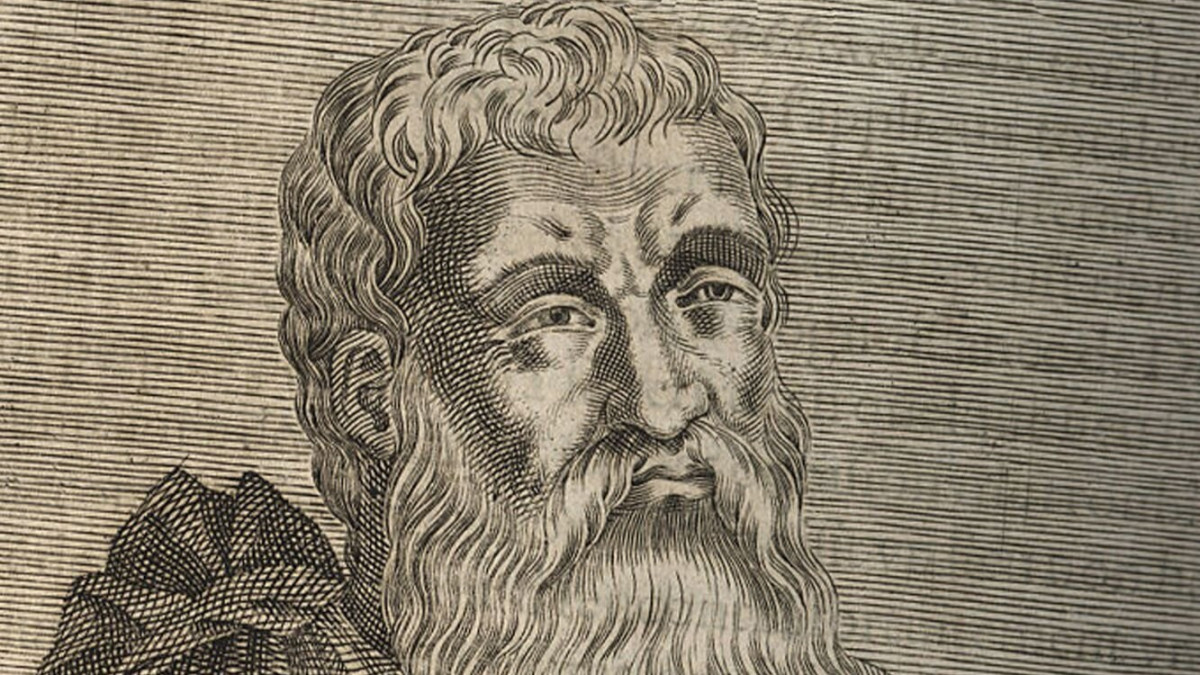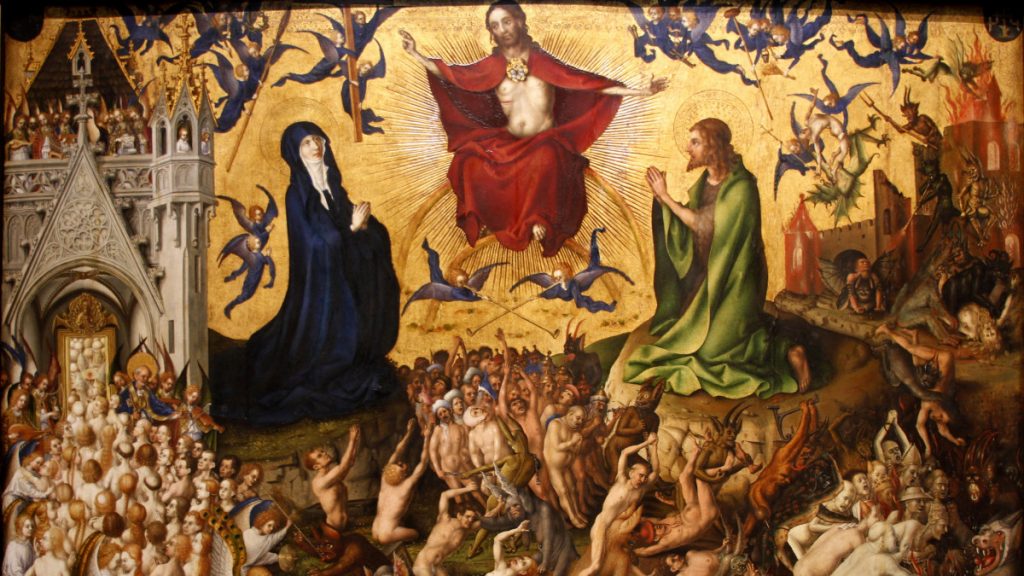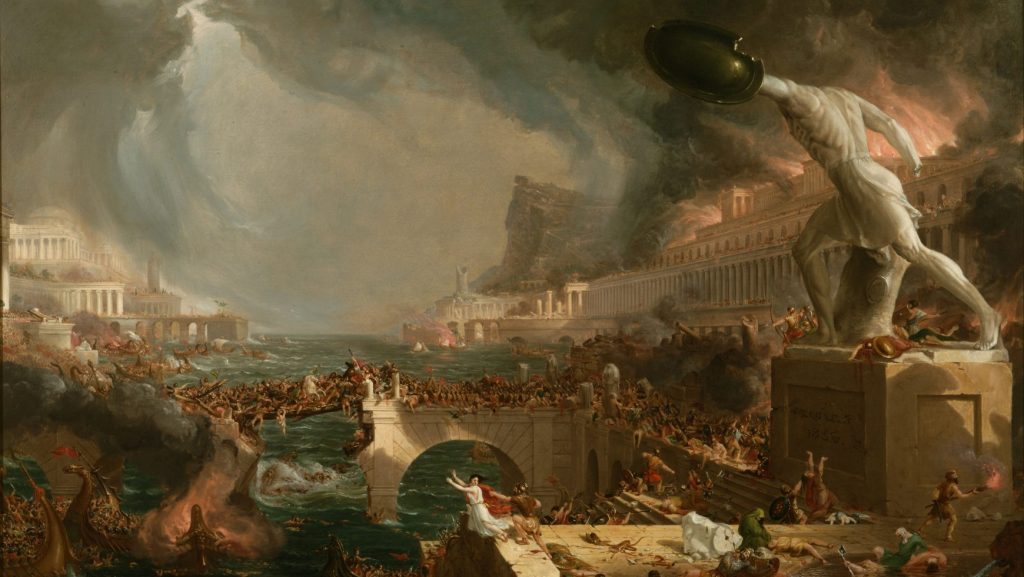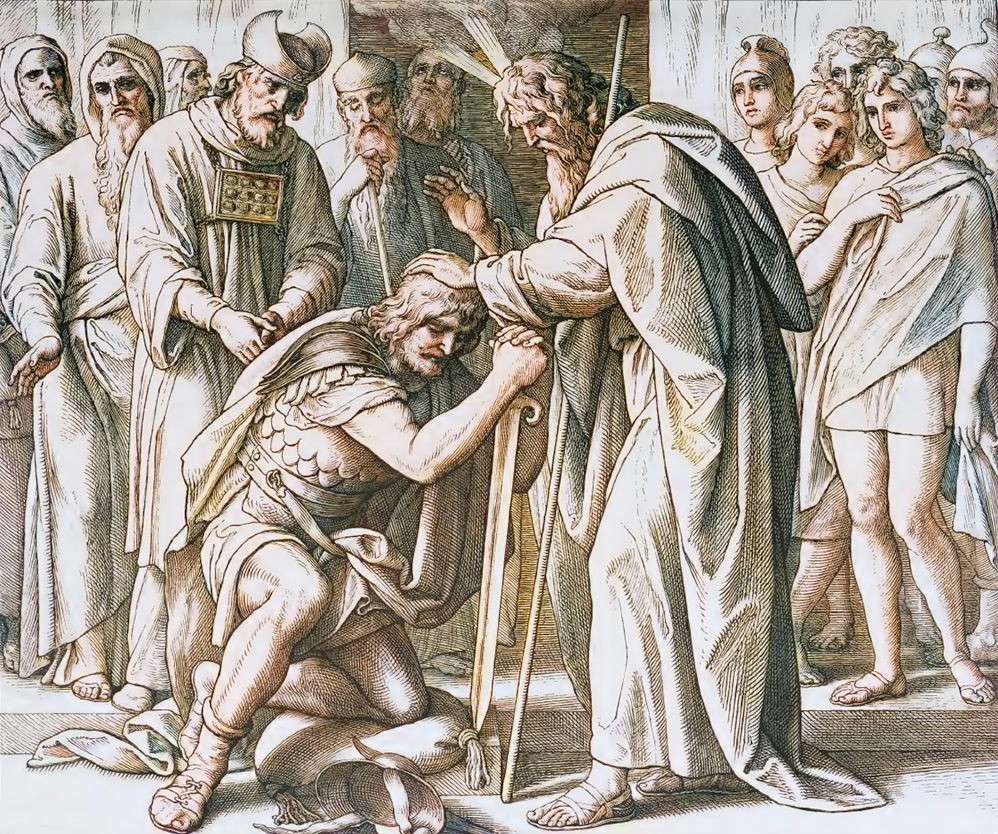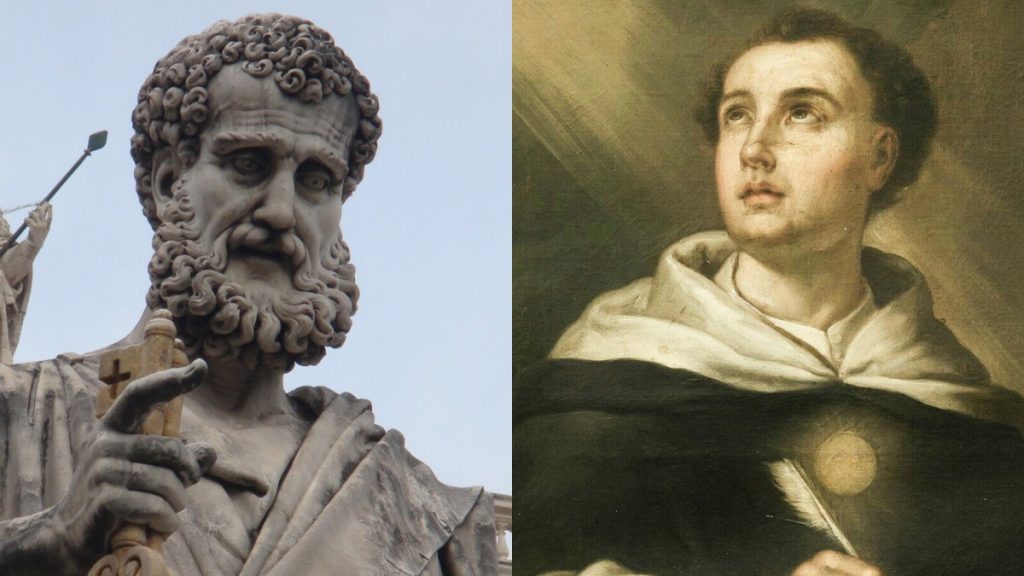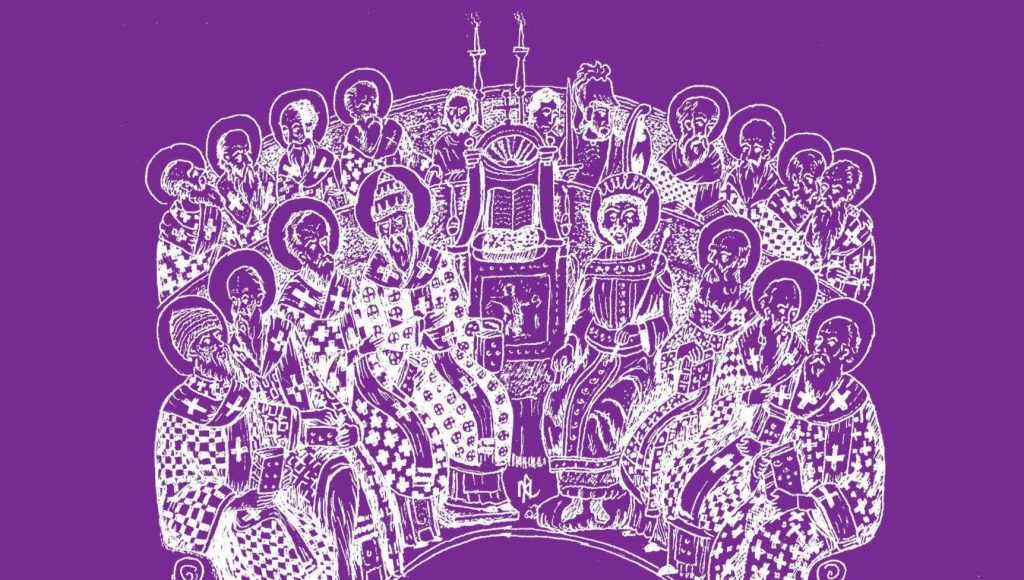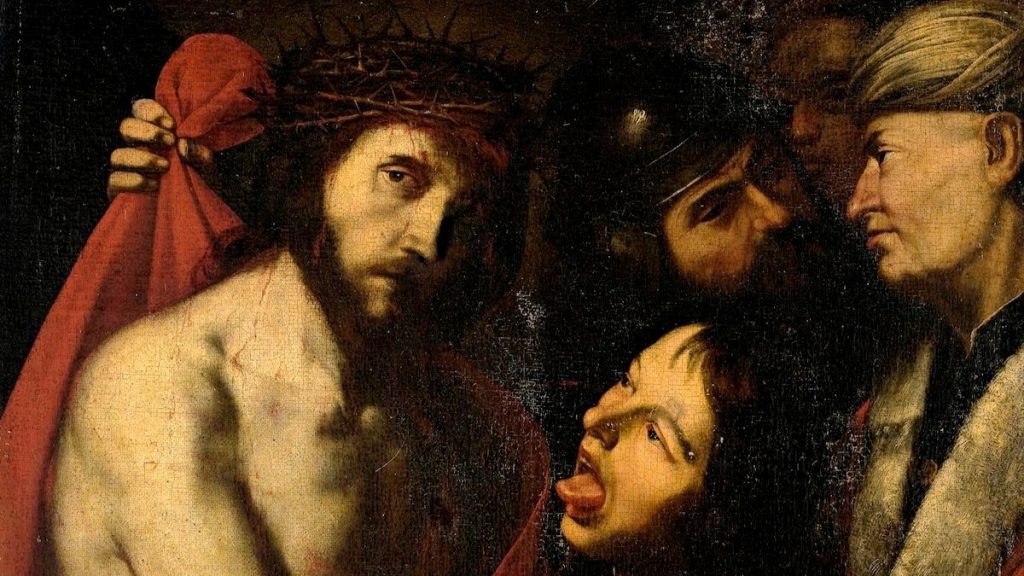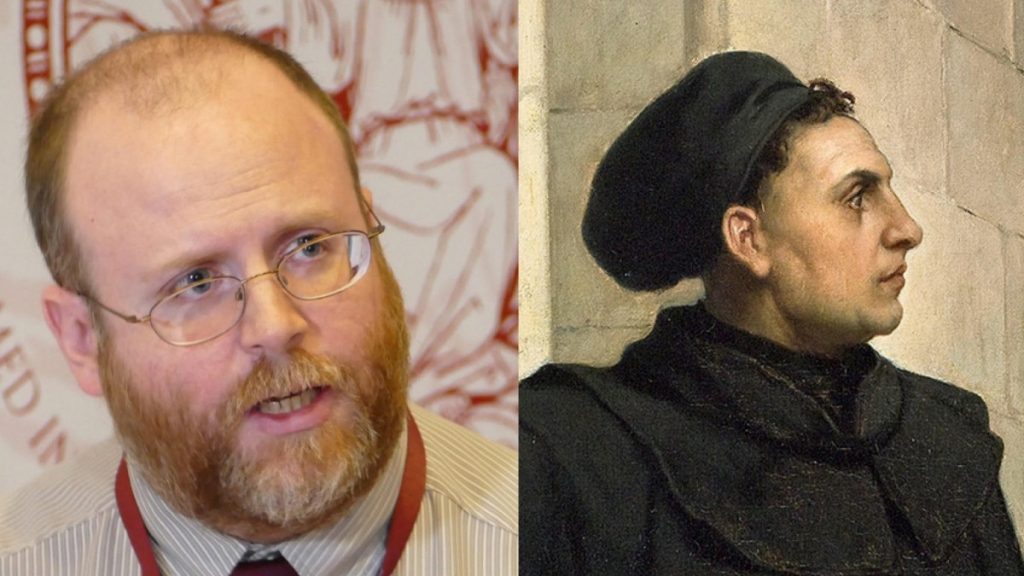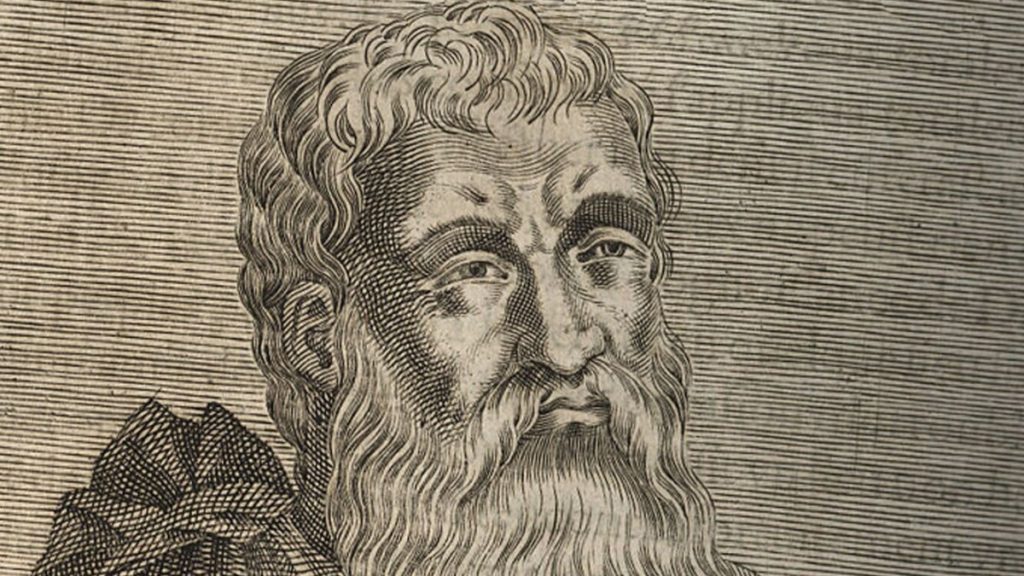Introduction
St. Justin Martyr was one of the Church’s first great apologists, utilizing the power of philosophy and Scripture to argue in favor of Christianity against both pagans and Jews. As indicated in The Martyrdom of Justin, he was martyred during the reign of Emperor Marcus Aurelius, sometime in the 160’s, and beheaded for not offering sacrifice to the Roman gods.
In the 2nd century, around AD 155, he described, in stunning detail, the early mass, and the Church’s Eucharistic doctrine, both of which came as a shock to me as a protestant, once more confronted by the ancient reality of the Catholic Faith.
Roadmap
With this background in mind, our Roadmap is as follows:
- Our thesis is that St. Justin Martyr testifies to all the essential elements of the sacrifice of the Mass that continue to be present and taught by the Catholic Church to this day. We will show this by:
- Quoting from his First Apology, and his Dialogue with Trypho, a Jewish interlocutor, which will show he believed the following about Christian worship:
- Christian worship consists of a sacrifice of bread and wine called the Eucharist (“thanksgiving”), which was instituted by Christ as the memorial of His Passion;
- This sacrifice of bread and wine becomes the true Body and Blood of Jesus Christ after the “prayer of His word” (the words of institution/consecration Jesus used at the Last Supper);
- This sacrifice is offered only by priests, and distributed to the congregation only by them and other clergy (deacons), not laymen;
- This sacrifice is available only to those who have been baptized, and accept the doctrine of the Church;
- This sacrifice may only be received by those among the baptized who obey the commandments (those who are not in a state of mortal sin, but a state of grace);
- This sacrifice takes place on Sundays, the day of Jesus’ resurrection, per the orally delivered teaching of Jesus through the Apostles; and finally
- This sacrifice was prophesied and prefigured in various places throughout the Old Testament.
- We will conclude with a summary of St. Justin Martyr’s testimony concerning the ancient Catholic Mass.
St. Justin Martyr’s First Apology
In his First Apology, Justin describes Christian worship, and lays out the essentials of what remain Catholic Eucharistic doctrine to this day.
For example, he speaks of the Eucharist as the actual Body and Blood of Christ brought about by the words of institution established by Christ Himself (§66):
And this food is called among us Εὐχαριστία [the Eucharist], of which no one is allowed to partake but the man who believes that the things which we teach are true, and who has been washed with the washing that is for the remission of sins, and unto regeneration, and who is so living as Christ has enjoined. For not as common bread and common drink do we receive these; but in like manner as Jesus Christ our Savior, having been made flesh by the Word of God, had both flesh and blood for our salvation, so likewise have we been taught that the food which is blessed by the prayer of His word [the words of institution/consecration], and from which our blood and flesh by transmutation are nourished, is the flesh and blood of that Jesus who was made flesh. For the apostles, in the memoirs composed by them, which are called Gospels, have thus delivered unto us what was enjoined upon them; that Jesus took bread, and when He had given thanks, said, “This do in remembrance of Me” (Luke 22:19), “This is My body”; and that, after the same manner, having taken the cup and given thanks, He said, “This is My blood”; and gave it to them alone.
Note that St. Justin includes several conditions for receiving the Eucharist:
- One must believe “that the things which we teach are true”;
- One must have been baptized, which is “the washing that is for the remission of sins, and unto regeneration”; and
- One must not be living in a state of what the Church calls “mortal sin,” which St. Justin describes as “so living as Christ has enjoined.”
These conditions–assenting to Catholic teaching, receiving baptism, and being in a state of grace–remain basic Catholic doctrine to this day in order to worthily receive the Eucharist.
Elsewhere, St. Justin speaks about the role of ordained clergy in this worship. He refers to the leader of this worship as the “president” (though as we shall see, he elsewhere equates this with priest), and those who assist the “president” in distributing communion as the deacons. In other words, only ordained ministers are involved in distributing holy communion. Likewise, the order of worship he describes continues to be the order of worship in the Catholic Church to this day (§65):
There is then brought to the president of the brethren bread and a cup of wine mixed with water; and he taking them, gives praise and glory to the Father of the universe, through the name of the Son and of the Holy Ghost, and offers thanks at considerable length for our being counted worthy to receive these things at His hands. And when he has concluded the prayers and thanksgivings, all the people present express their assent by saying Amen…And when the president has given thanks [eucharistia], and all the people have expressed their assent, those who are called by us deacons give to each of those present to partake of the bread and wine mixed with water over which the thanksgiving was pronounced, and to those who are absent they carry away a portion.
St. Justin also speaks to the fact that Christian worship took place on Sunday, and that this was commanded by Jesus—a command nowhere contained in Scripture (by the mouth of Jesus), or elsewhere explicitly commanded by the Apostles (though perhaps subtly alluded to) (§67):
And on the day called Sunday, all who live in cities or in the country gather together to one place, and the memoirs of the apostles or the writings of the prophets are read, as long as time permits; then, when the reader has ceased, the president verbally instructs, and exhorts to the imitation of these good things. Then we all rise together and pray, and, as we before said, when our prayer is ended, bread and wine and water are brought, and the president in like manner offers prayers and thanksgivings, according to his ability, and the people assent, saying Amen; and there is a distribution to each, and a participation of that over which thanks have been given, and to those who are absent a portion is sent by the deacons…
But Sunday is the day on which we all hold our common assembly, because it is the first day on which God, having wrought a change in the darkness and matter, made the world; and Jesus Christ our Savior on the same day rose from the dead. For He was crucified on the day before that of Saturn (Saturday); and on the day after that of Saturn, which is the day of the Sun, having appeared to His apostles and disciples, He taught them these things, which we have submitted to you also for your consideration.
St. Justin Martyr’s Dialogue with Trypho
Similar and additional details are contained in his Dialogue with Trypho, which records a dialogue between St. Justin and a Jewish interlocutor named Trypho.
With respect to Christian worship, early on in the dialogue St. Justin describes how the Old Testament prophesied that the God of Israel would call the Gentiles to Himself, and that a new sacrifice would be instituted among the nations (§28):
But though a man be a Scythian or a Persian, if he has the knowledge of God and of His Christ, and keeps the everlasting righteous decrees, he is circumcised with the good and useful circumcision, and is a friend of God, and God rejoices in his gifts and offerings. But I will lay before you, my friends, the very words of God, when He said to the people by Malachi, one of the twelve prophets, “I have no pleasure in you, saith the Lord; and I shall not accept your sacrifices at your hands. For from the rising of the sun unto its setting My name shall be glorified among the Gentiles; and in every place a sacrifice is offered unto My name, even a pure sacrifice: for My name is honored among the Gentiles, saith the Lord. But you profane it” (Mal. 1:10-12). And by David He said, “A people whom I have not known, served Me; at the hearing of the ear they obeyed Me” (Ps. 18:43).
Later on, St. Justin says that this prophesied sacrifice of the Gentiles was typologically prefigured by the grain offering in the Torah. And in the same way that this grain offering was only offered by the circumcised, he says this sacrifice of the Eucharist is only offered by those who have received the new circumcision–the circumcision of the heart–of Christian baptism (§41):
And the offering of fine flour, sirs, I said, which was prescribed to be presented on behalf of those purified from leprosy [Lev. 14:10], was a type of the bread of the Eucharist, the celebration of which our Lord Jesus Christ prescribed, in remembrance of the suffering which He endured on behalf of those who are purified in soul from all iniquity, in order that we may at the same time thank God for having created the world, with all things therein, for the sake of man, and for delivering us from the evil in which we were, and for utterly overthrowing principalities and powers by Him who suffered according to His will.
Hence God speaks by the mouth of Malachi, one of the twelve [prophets], as I said before [§28], about the sacrifices at that time presented by you: “I have no pleasure in you, saith the Lord; and I will not accept your sacrifices at your hands. For, from the rising of the sun unto the going down of the same, My name has been glorified among the Gentiles, and in every place incense is offered to My name, and a pure offering: for My name is great among the Gentiles, saith the Lord. But you profane it” (Mal. 1:10-12).
[So] He then speaks of those Gentiles, namely us, who in every place offer sacrifices to Him, i.e., the bread of the Eucharist, and also the cup of the Eucharist, affirming both that we glorify His name, and that you [the Jews] profane [it]. The command of circumcision, again, bidding [them] always circumcise the children on the eighth day, was a type of the true circumcision [baptism], by which we are circumcised from deceit and iniquity through Him who rose from the dead on the first day after the Sabbath, [namely through] our Lord Jesus Christ. For the first day after the Sabbath [Sunday, the Lord’s Day], remaining the first of all the days, is called, however, the eighth, according to the number of all the days of the cycle, and [yet] remains the first.
St. Justin likewise sees the Eucharist prophesied by Isaiah, in which the prophet similarly foretells the coming of salvation to the Gentiles (§70):
But I must repeat to you [Trypho] the words of Isaiah referred to, in order that from them you may know that these things are so. They are these (Isa. 33:13-19):
“Hear, you that are far off [the Gentiles], what I have done; those that are near shall know my might. The sinners in Zion are removed; trembling shall seize the impious. Who shall announce to you the everlasting place? The man who walks in righteousness, speaks in the right way, hates sin and unrighteousness, and keeps his hands pure from bribes, stops the ears from hearing the unjust judgment of blood, closes the eyes from seeing unrighteousness: he shall dwell in the lofty cave of the strong rock. Bread shall be given to him, and his water [shall be] sure. You shall see the King with glory, and your eyes shall look far off. Your soul shall pursue diligently the fear of the Lord. Where is the scribe? Where are the counselors? Where is he that numbers those who are nourished—the small and great people? With whom they did not take counsel, nor knew the depth of the voices, so that they heard not. The people who are become depreciated, and there is no understanding in him who hears.”
Now it is evident, that in this prophecy [allusion is made] to the bread which our Christ gave us to eat, in remembrance of His being made flesh for the sake of His believers, for whom also He suffered; and to the cup which He gave us to drink, in remembrance of His own blood, with giving of thanks. And this prophecy proves that we shall behold this very King with glory; and the very terms of the prophecy declare loudly, that the people foreknown to believe in Him were foreknown to pursue diligently the fear of the Lord.
Later on, he refers to the fact that this sacrifice is only offered through priests, which–while a general reference to Christians in general–was no doubt, more particularly, a reference to the priests he referred to in his First Apology as the “presidents” over Christian worship (§116):
[E]ven so we, who through the name of Jesus have believed as one man in God the Maker of all, have been stripped, through the name of His first-begotten Son, of the filthy garments, i.e., of our sins; and being vehemently inflamed by the word of His calling, we are the true high priestly race of God, as even God Himself bears witness, saying that in every place among the Gentiles sacrifices are presented to Him well-pleasing and pure. Now God receives sacrifices from no one, except through His priests.
Indeed, Isaiah prophesies the coming of this new priesthood from among the Gentiles in Isaiah 66:20-21, in which he mentions a “cereal offering” (the same as described in Leviticus, and referred to by St. Justin in his First Apology as a prefiguring of the Eucharist), and that from among the Gentiles, “some of them also I will take for priests and for Levites, says the Lord” (verse 21).
Finally, St. Justin summarizes the prophecies of the Eucharist as the sacrifice offered by the Gentiles throughout the whole world. He points out that the Jews now claim, after the destruction of the Temple, that their prayers are “sacrifices” (apparently in order to make up for the fact that they cannot offer sacrifice according to the Law of Moses without the Temple in Jerusalem). But this true sacrifice, he says, is now offered only by Christians in the Church, a fact he proves once more by citing Malachi’s prophecy, asserting that it had not been fulfilled by the Jews who rejected Christ, but by the Gentiles who had received Him (§117):
Accordingly, God, anticipating all the sacrifices which we offer through this name, and which Jesus the Christ enjoined us to offer, i.e., in the Eucharist of the bread and the cup, and which are presented by Christians in all places throughout the world, bears witness that they are well-pleasing to Him. But He utterly rejects those presented by you and by those priests of yours, saying, “And I will not accept your sacrifices at your hands; for from the rising of the sun to its setting my name is glorified among the Gentiles (He says); but you profane it” (Mal. 1:10-12). Yet even now, in your love of contention, you assert that God does not accept the sacrifices of those who dwelt then in Jerusalem, and were called Israelites; but says that He is pleased with the prayers of the individuals of that nation then dispersed, and calls their prayers sacrifices. Now, that prayers and giving of thanks, when offered by worthy men, are the only perfect and well-pleasing sacrifices to God, I also admit. For such alone Christians have undertaken to offer, and in the remembrance effected by their solid and liquid food, whereby the suffering of the Son of God which He endured is brought to mind, whose name the high priests of your nation and your teachers have caused to be profaned and blasphemed over all the earth…
But as to you and your teachers deceiving yourselves when you interpret what the Scripture says as referring to those of your nation then in dispersion, and maintain that their prayers and sacrifices offered in every place are pure and well-pleasing, learn that you are speaking falsely, and trying by all means to cheat yourselves: for, first of all, not even now does your nation extend from the rising to the setting of the sun, but there are nations among which none of your race ever dwelt. For there is not one single race of men, whether barbarians, or Greeks, or whatever they may be called, nomads, or vagrants, or herdsmen living in tents, among whom prayers and giving of thanks are not offered through the name of the crucified Jesus. And then, as the Scriptures show, at the time when Malachi wrote this, your dispersion over all the earth, which now exists, had not taken place.
Conclusion
From all the above, we can see that St. Justin Martyr testifies to all the essential elements of Catholic worship around the year 155, and connects it to both written (i.e. Scripture) and unwritten Apostolic Tradition. He grounds the reality of the Eucharist in both the words of Christ, and typological prefigurements in the Old Testament. In that same Old Testament, he points out types of baptism (circumcision), the Lord’s Day (the Sabbath), and the sacrifice of the Eucharist being offered among the Gentiles (the grain offering and “bread” spoken of by Isaiah). The basic order of Mass he outlines is the same basic order present today in the same Catholic Church–a continuity and stability for which we are deeply grateful to Our Lord and Savior Jesus Christ, to whom honor and glory be forever and ever. Amen.
